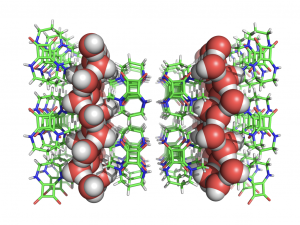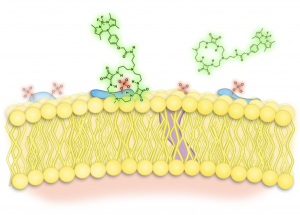Supramolecular chemistry involves the study of systems formed by molecules joined together by a multitude of non-covalent interactions (hydrogen bonding, π-π interactions, cation-π, anion-π, metal-ligand, etc.).
It is an area of chemistry that transcends the chemistry of the covalent bond and allows the construction of molecular assemblies at the nanoscale. This line of research is aimed at obtaining functional supramolecular structures. These structures are capable of changing their properties (length, shape, color …) depending on an external stimulus (photochemical, electrical, a pH change …). The aim is to predict the structure of a super-molecule formed by the aggregation of smaller molecules, that is, to know what type of architecture it will adopt based on the geometric characteristics, the forces that will act in its assembly and the covalent connectivity present in each one. of the components.
After several decades of innovative developments, supramolecular chemistry has evolved into a multidisciplinary science that is at the center of the most important advances in materials and biotechnology. In the coming years, the preparation of supramolecular molecules and systems capable of realizing real functions will bring important advances in different areas. We want to contribute to this future by facing some important problems in the design and understanding of the molecular properties of supramolecular entities, both theoretically and experimentally. Therefore, we believe that the study, design and synthesis of precursors and supramolecular systems should provide significant advances in different areas in the near future.
Our research group wishes to contribute to the general progress of Chemistry from the field of supramolecular chemistry by facing some important problems for understanding the properties of some supramolecular systems.


